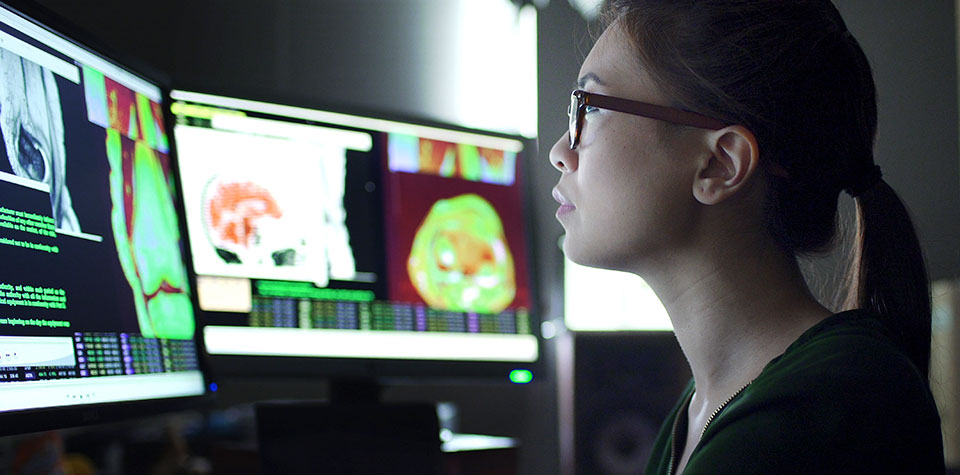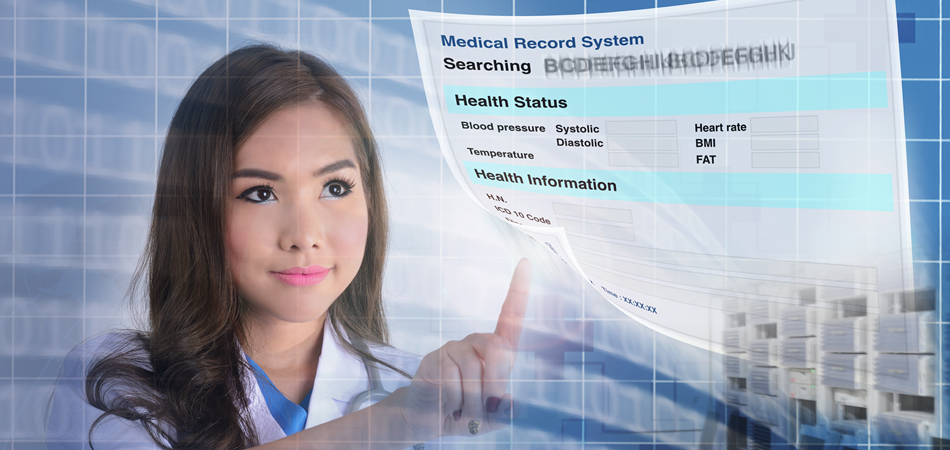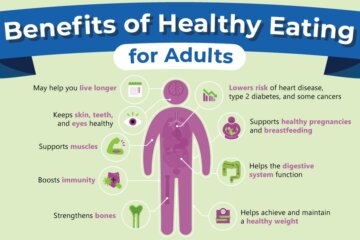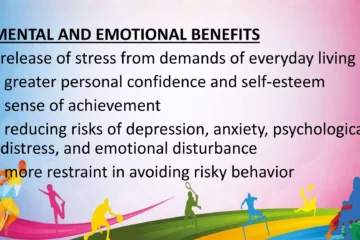Are you considering a career path that merges your interest in technology with a passion for healthcare? Health Information Technology might just be the perfect choice for you.
Imagine being at the forefront of transforming healthcare through innovative tech solutions, improving patient care, and streamlining complex processes. But is this career really as promising as it sounds? In the following sections, you’ll discover why Health Information Technology is rapidly gaining attention and whether it aligns with your aspirations and goals.
Get ready to explore the ins and outs of this exciting field and decide if it’s the right fit for you. Your future might be more promising than you think!
Health Information Technology Basics
Health Information Technology (HIT) is a rapidly evolving field that combines healthcare with information technology. As healthcare systems become more complex, the demand for skilled professionals who can manage and protect patient data is increasing. Understanding the basics of HIT is crucial if you’re considering a career in this dynamic industry.
What Is Health Information Technology?
Health Information Technology involves the use of computers and software to manage health data. This includes electronic health records, telemedicine, and health information exchanges. You might have noticed how hospitals are moving away from paper records to digital systems. This shift is driven by the need for more efficient, secure, and accessible patient data management.
Skills Required In Health Information Technology
To thrive in HIT, you need a mix of technical and healthcare knowledge. Basic IT skills, like understanding databases and software applications, are essential. Equally important is knowing medical terminology and healthcare processes. Can you imagine troubleshooting a system error without knowing how the healthcare facility operates?
Education And Training
Most HIT jobs require at least an associate degree in health information technology or a related field. However, having a bachelor’s degree can open up more opportunities and higher salaries. Certifications like RHIT (Registered Health Information Technician) can further boost your career prospects. Are you ready to invest in your education for long-term career benefits?
Career Opportunities
HIT offers a range of career paths, from data analysts to IT support roles in healthcare settings. With the rise of telemedicine, new opportunities are emerging every day. Imagine working in a role where you help streamline patient care through technology! Does that sound exciting to you?
Job Outlook And Salary Expectations
The job outlook for HIT professionals is positive, with a growing demand for skilled workers. Salaries vary based on education and experience, but they are generally competitive. Picture yourself in a stable career, contributing to better healthcare outcomes while enjoying financial rewards.
Consider these insights as you weigh your career options. Are you ready to be part of a field that’s shaping the future of healthcare?
Career Opportunities In Health It
The field of Health Information Technology (Health IT) is bursting with potential. As healthcare facilities increasingly rely on digital records, the demand for skilled professionals grows. Are you curious about what career opportunities await you in Health IT?
Roles And Responsibilities
Health IT professionals play a critical role in managing patient data. Your tasks might include ensuring the accuracy of electronic health records (EHRs) or supporting healthcare providers with technology. It’s more than just tech support—it’s about maintaining the integrity of sensitive health information.
You may find yourself collaborating with doctors to streamline data entry processes. Imagine helping a busy hospital reduce patient waiting times by optimizing their EHR system. Your daily responsibilities can directly impact patient care and hospital efficiency.
Emerging Job Titles
The landscape of Health IT is evolving, introducing new career paths regularly. Positions like Clinical Informatics Specialist and Health Data Analyst are gaining popularity. These roles focus on analyzing and improving healthcare delivery through data insights.
Ever thought about becoming a Telehealth Coordinator? With virtual healthcare visits on the rise, this role involves ensuring smooth operation of telemedicine services. Your work could enable patients to receive care from the comfort of their homes, which is particularly valuable in remote areas.
Consider if these roles align with your interests. Are you drawn to data analysis or more hands-on technology support? The diverse opportunities in Health IT allow you to tailor your career to your strengths and passions.
Skills Required For Success
Health Information Technology offers a promising career path. Essential skills include data management, attention to detail, and strong communication. This field combines healthcare knowledge with technology, ensuring efficient patient care.
When considering a career in Health Information Technology (HIT), understanding the skills required for success is crucial. The field demands a blend of technical and soft skills, which together create a foundation for effective performance and career growth. Whether you’re just starting out or looking to advance, knowing what skills are essential can guide your learning and development path.
Technical Skills
Technical skills form the backbone of any HIT professional’s toolkit. You should be comfortable with electronic health records (EHR) systems, as these are integral to managing patient information efficiently. Familiarity with coding and programming languages like SQL can significantly boost your problem-solving capabilities. Data analysis is another key area. You’ll need to interpret complex datasets to improve healthcare outcomes. Consider gaining certifications in specialized software that are widely used in hospitals and clinics. Are you ready to dive into these technical aspects and make a difference in healthcare?
Soft Skills
Soft skills are equally important in the HIT field. Communication tops the list. You’ll often need to explain complex technical information to non-technical staff, making clarity and simplicity your allies. Teamwork is essential. You’ll collaborate with healthcare professionals, IT staff, and administrators regularly. A real-world example: I once worked on a project where effective teamwork led to the implementation of a new patient management system ahead of schedule. Critical thinking and problem-solving are vital skills. HIT is a dynamic field where challenges can arise unexpectedly. Are you prepared to think on your feet and find solutions quickly? Your soft skills can set you apart and propel your career forward. Success in Health Information Technology hinges on balancing technical expertise with interpersonal abilities. Are you ready to equip yourself with these skills and make a significant impact in healthcare?

Credit: www.cambridgehealth.edu
Educational Pathways
Exploring a career in health information technology opens many doors. Educational pathways are diverse, each offering unique advantages. Whether pursuing a degree or obtaining certifications, the options are plentiful.
Degree Programs
Degree programs in health information technology provide a solid foundation. Many universities offer specialized degrees. An associate’s degree covers basics like medical records management. A bachelor’s degree dives deeper into data analytics and system design. Coursework often includes health informatics, coding systems, and database management. These programs prepare students for various roles in the field.
Certification Options
Certifications enhance career prospects in health information technology. They validate skills and knowledge in specific areas. Common certifications include Registered Health Information Technician (RHIT) and Certified Health Data Analyst (CHDA). These credentials often require passing exams and meeting educational prerequisites. Certifications can lead to better job opportunities and higher salaries.
Industry Demand And Growth
The demand for health information technology professionals is rapidly increasing. This sector offers promising career growth due to technological advancements in healthcare. Opportunities abound for those interested in data management and improving patient care efficiency.
In today’s rapidly evolving healthcare landscape, the demand for professionals in Health Information Technology (HIT) is soaring. As medical facilities transition to digital records and data-driven decision-making, HIT experts are becoming essential. Are you considering stepping into this dynamic field? Let’s dive into why Health Information Technology might be your next career move, focusing specifically on industry demand and growth.
Current Job Market
The current job market for Health Information Technology is vibrant. Hospitals, clinics, and private practices are continually seeking skilled professionals to manage their electronic health records and improve patient care. Have you noticed how fast technology changes? In HIT, your skills need to keep up with the latest trends in data security and system management. This constant evolution means more job opportunities and the chance to always learn something new. It’s not just about having a job; it’s about having a career that challenges and engages you. HIT roles are varied and can range from data management to system analysis, offering a wide scope for specialization.
Future Trends
Looking ahead, the future of Health Information Technology is promising. With advancements in AI and machine learning, HIT will play a crucial role in predictive analytics and personalized medicine. Think about the potential impact on patient care. As technology advances, HIT professionals will be at the forefront, ensuring that data is used effectively to improve health outcomes. Are you ready to embrace a future where technology and healthcare intersect? The growth in telemedicine and mobile health apps is just the beginning. HIT professionals will be key players in shaping the future of healthcare. In essence, Health Information Technology is not just about numbers and systems; it’s about making a meaningful difference. Are you ready to be part of this exciting journey?

Credit: onlinedegrees.sandiego.edu
Salary Expectations
When considering a career in health information technology, understanding the salary expectations can provide valuable insights. It’s more than just numbers; it’s about the lifestyle you can afford and the goals you can achieve. Knowing what you might earn can help you plan your career path effectively.
Entry-level Salaries
Starting out in health information technology, you can expect a competitive salary. Many entry-level positions offer a solid foundation, allowing you to earn while gaining valuable experience. You might find yourself earning between $40,000 to $60,000 annually, depending on your location and the organization’s size.
These figures mean you can start building financial stability soon after graduation. Think about how this salary can help you pay off student loans or save for future goals. It’s an exciting prospect, isn’t it?
Potential For Advancement
As you gain experience in health information technology, your earning potential increases significantly. The industry is ripe with opportunities for those who are dedicated and ambitious. You might find yourself progressing to roles such as Health IT Manager or Director, with salaries ranging from $80,000 to over $100,000.
This potential for advancement means your hard work truly pays off. Career growth is not just about the money but also about taking on more challenging and rewarding roles. Consider how advancing in your career can fulfill your professional aspirations.
Have you ever thought about how your career path could evolve? With dedication, the sky’s the limit in health information technology. Are you ready to take the first step?
Challenges In Health It
Health Information Technology (Health IT) is a field brimming with potential and opportunities. However, like any career, it presents its fair share of challenges. Understanding these hurdles can help you decide if this path aligns with your career aspirations and personal strengths.
Security And Privacy Concerns
One of the most significant challenges in Health IT is maintaining the security and privacy of patient data. With the rise of cyber threats, protecting sensitive health information is more critical than ever. You might find yourself constantly ensuring compliance with regulations like HIPAA, which can be both demanding and meticulous.
Think about this: how would you feel if your health records were compromised? This question highlights the gravity of your responsibility in safeguarding patient data. Staying vigilant and up-to-date on security protocols is not just a task—it’s a necessity.
Rapid Technological Changes
The pace of technological advancement in Health IT is astounding. New tools and systems emerge regularly, requiring you to adapt quickly. This constant change can be exciting but also overwhelming if you’re not prepared for continual learning.
Imagine a day when you finally master a complex system, only to find it replaced by a newer version. This scenario is common in Health IT. Are you ready to embrace a career where learning never stops and adaptability is key?
Facing these challenges head-on can define your success in Health IT. Consider if you thrive in dynamic environments and enjoy problem-solving. If you do, Health IT might just be the perfect fit for you.

Credit: beal.edu
Benefits Of A Health It Career
Choosing a career in Health Information Technology offers many advantages. This field is rapidly growing and plays a crucial role in modern healthcare. It combines technology with healthcare, providing a unique career path. Let’s explore the benefits of a Health IT career.
Impact On Healthcare
Health IT professionals improve patient care. They streamline data management and enhance communication. This leads to faster diagnosis and treatment. It also reduces errors in medical records. Their work directly impacts patient outcomes. They help make healthcare more efficient and effective.
Job Satisfaction
Many find great satisfaction in Health IT careers. Working in healthcare is rewarding. You contribute to saving lives and improving health. The field offers diverse roles and challenges. Continuous learning keeps the job exciting. Collaboration with healthcare professionals adds value to the work. This leads to a fulfilling career experience.
Comparing Health It With Other It Careers
Health Information Technology (Health IT) is gaining popularity. It combines healthcare with technology, providing unique career opportunities. Comparing Health IT with other IT careers helps understand its potential. Both fields offer numerous advantages. But there are also distinct differences.
Similarities And Differences
Health IT and other IT careers share a technological foundation. Both require knowledge of software, hardware, and data management. Coding and programming skills are beneficial in both fields. But Health IT focuses on healthcare settings. It deals with electronic health records and patient management systems. Other IT careers might focus on finance, education, or entertainment. Health IT professionals often work in hospitals or clinics. Other IT professionals may work in corporate offices or tech firms. The goal of Health IT is to improve patient care. Other IT fields aim to enhance business operations or consumer experiences.
Pros And Cons
Health IT offers job stability. The healthcare industry continues to grow. This growth leads to more opportunities. Health IT professionals contribute to patient safety and care quality. This can be rewarding. But Health IT might require knowledge of medical terminologies. This can be challenging for some. Other IT careers might offer higher salaries. But they could also be more competitive. Health IT often provides a clear path for career advancement. Other IT fields might require frequent skill updates. Each path has its own set of challenges and rewards.
Making The Decision
Deciding on a career in health information technology is crucial. It shapes your future. This field offers opportunities for growth and impact. Before making a choice, consider key factors. Think about what fits your life and goals.
Personal Interests And Skills
Personal interests matter in health information technology. Do you like working with data? Are you interested in healthcare systems? These interests can guide your decision. Skills are essential too. Are you good at organizing information? Can you analyze data effectively? These skills can help you succeed.
Long-term Career Goals
Consider your long-term career goals. Do you want a stable job? Health information technology offers job security. Are you aiming for a position with growth potential? This field provides pathways for advancement. Think about what you want to achieve. Make sure your goals align with the career path.
Frequently Asked Questions
Is Health Information Technician A Good Career?
Yes, a career as a health information technician is rewarding. It offers job stability and competitive salaries. The demand for skilled professionals is growing in healthcare. This role involves managing patient data, ensuring accuracy, and maintaining privacy. Opportunities for advancement and specialization exist within this field.
Is Health Information Technology In Demand?
Yes, health information technology is in high demand. The healthcare industry increasingly relies on technology to improve patient care and data management. This growth creates numerous job opportunities for skilled professionals in this field.
What Is The Best Paying Health Information Technology Job?
The best paying health information technology job is a Chief Information Officer (CIO). They oversee IT strategies, manage teams, and ensure data security. CIOs in healthcare organizations often earn six-figure salaries, reflecting their critical role in aligning technology with business goals.
What Can You Do With Health Information Technology?
Health information technology enhances patient care by managing medical records, improving communication, and streamlining healthcare processes. It supports data analytics, aids in treatment decisions, and boosts operational efficiency. This technology ensures secure patient data exchange, facilitates telemedicine, and promotes better patient engagement.
It ultimately improves healthcare quality and accessibility.
Conclusion
Health Information Technology offers a promising career path. Jobs in this field are growing. High demand ensures job security. You can help improve healthcare systems. Working with technology keeps the job interesting. Skills learned are valuable and transferable. A rewarding and impactful career awaits.
Consider your passion for tech and healthcare. A balanced decision leads to success. Keep learning and stay updated with trends. This career path suits those ready for a tech-driven future.

“As the voice behind Radiant Glow Health, we are dedicated to being your ultimate wellness and vitality companion. Our mission is to inspire and guide you on your journey to a healthier and more vibrant life. Join us as we explore holistic health practices and empower you to radiate wellness from within.”



